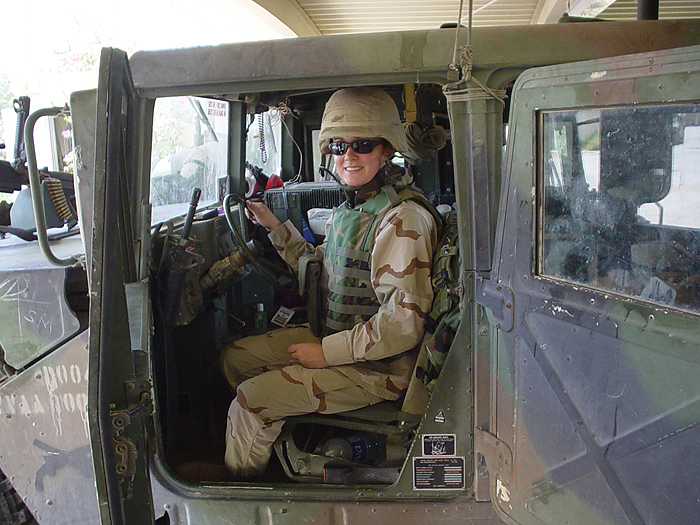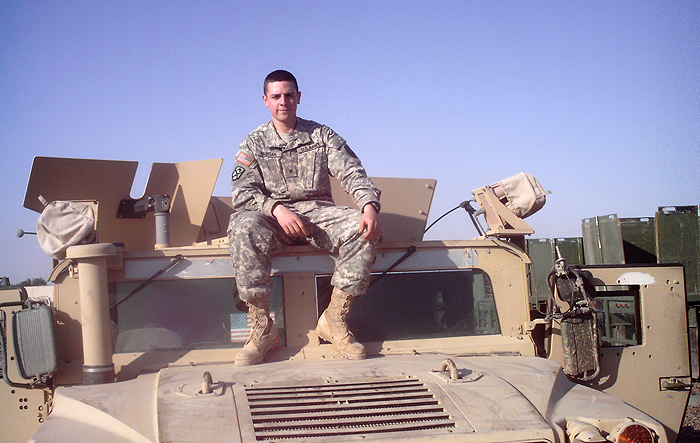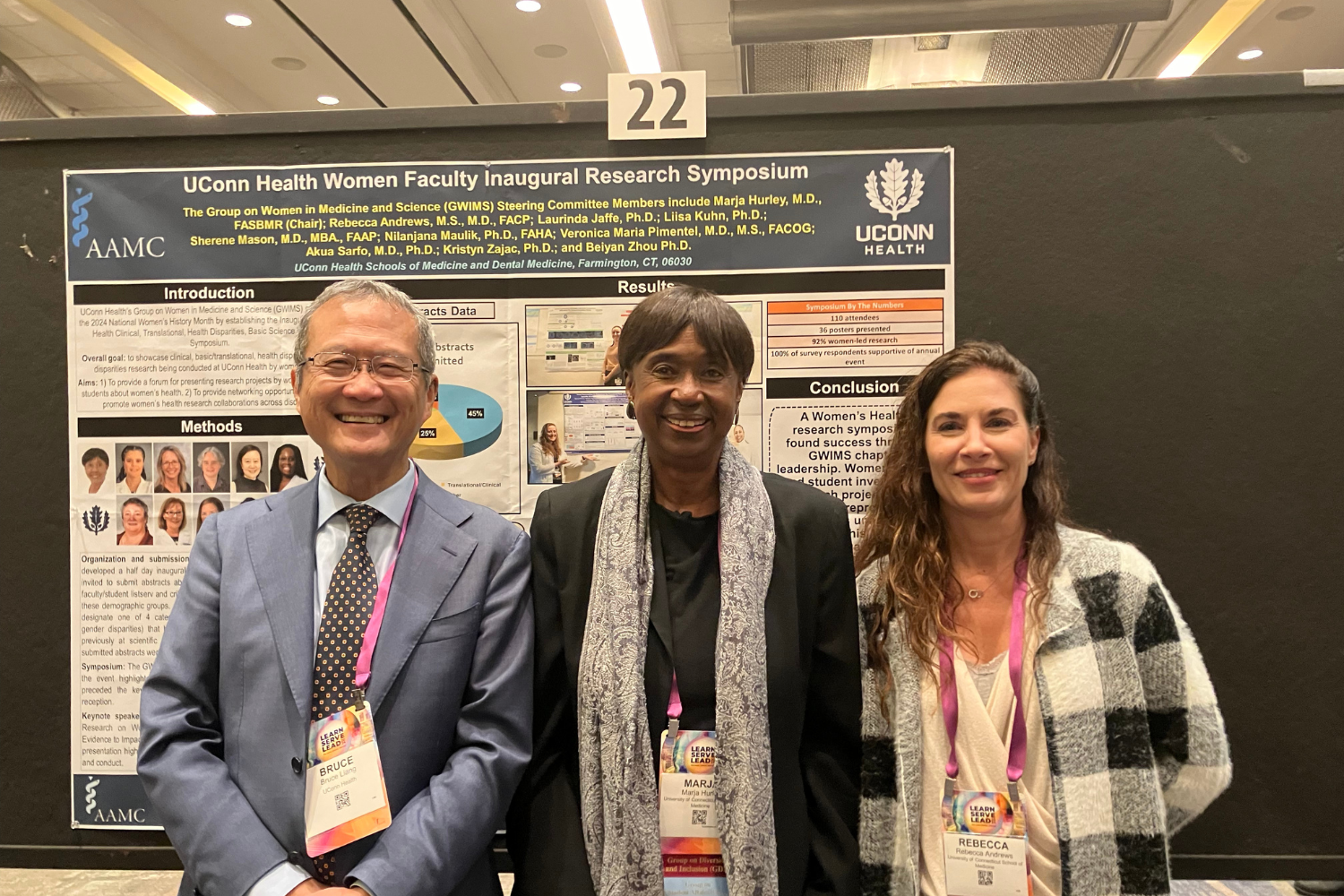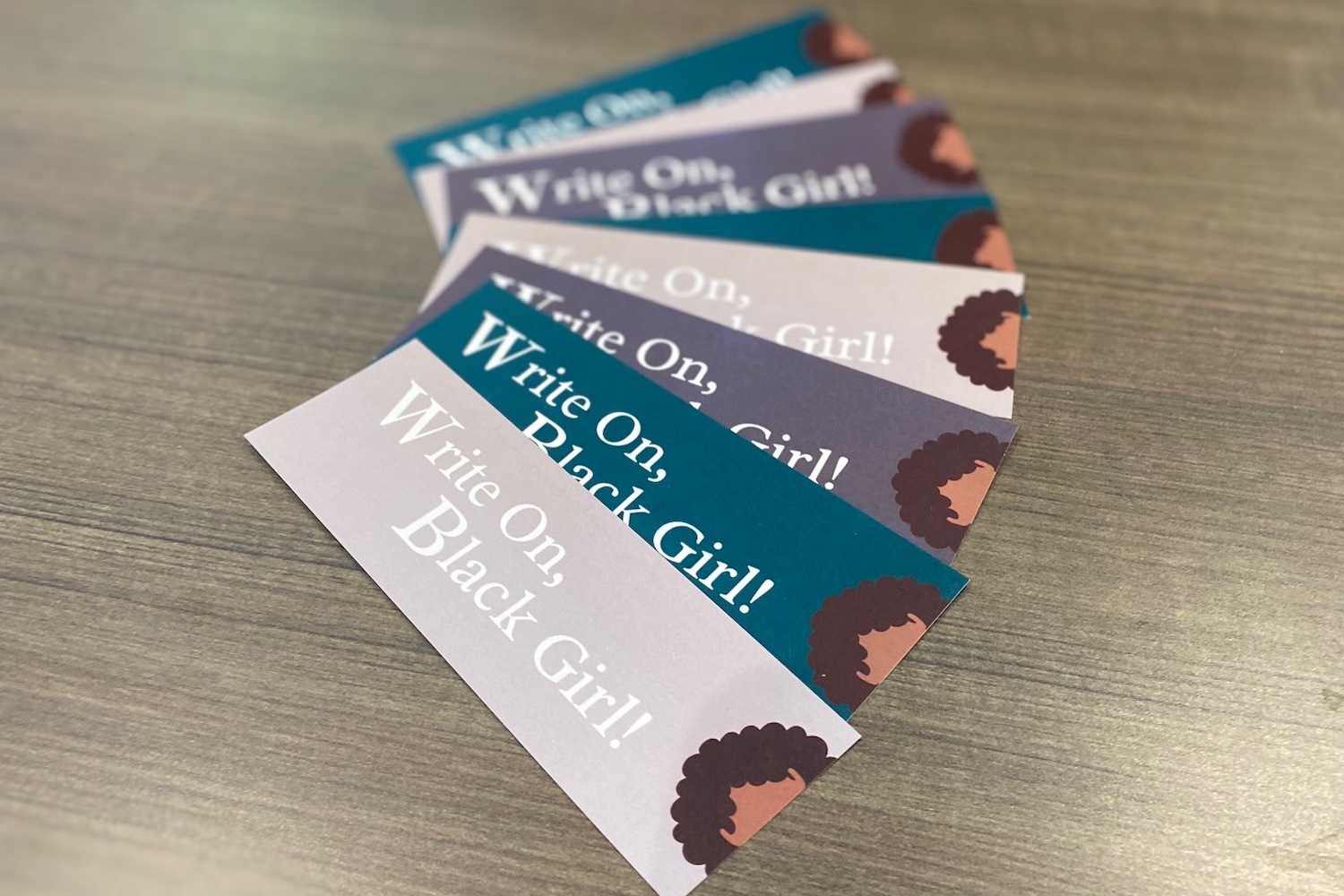
Even as they continue to adjust to the academic challenges of life on campus, students can find themselves worried about taking tests and writing term papers. But Evan Paradis ’12 (CLAS) is not a typical undergraduate, rattled by demanding assignments or tough exams. “There’s nothing that this place could throw at me that’s going to stress me out,” the 25-year-old says.
Paradis started classes in Storrs in fall 2009 as one of approximately 250 UConn students who are military veterans. It was not so long ago that he spent his days aboard an aircraft carrier while serving in the U.S. Navy.
Deployed three times to the Persian Gulf, Paradis worked as a machinist mate, operating nuclear reactors in the blistering heat of the ship’s engine room. Being asked to write a 10-page paper, he says, is “nothing compared to what the alternative is.”
From Soldiers to Students
For Paradis, joining the military ensured a path to the college education he would not otherwise have been able to afford. Others choose to enlist out of a sense of duty or in search of adventure. No matter what their motivation for enlisting, many student veterans ultimately cite their military experience as the catalyst that helped shape their time at UConn as well as their goals for the future.

Army Reservist Timothy Haroian ’11 (CLAS) admits that he had never been a very engaged student previously. “I didn’t have any kind of plan coming out of high school. I wasn’t looking past next week,” he says. Only after going to Iraq did Haroian begin to develop a vision for his future, realizing that he wanted to obtain his college degree. “Joining made me more mature and let me have more of a plan about what I wanted to do,” he says. Now a political science major, Haroian is considering getting an MBA or a law degree at UConn and then plans to join the Army Special Forces with degrees in hand.
Dan Maloney ’13 (CLAS) joined the Air Force, rather than head to college after high school. Deployed to South Korea, Panama, and Afghanistan during his four years in the military, Maloney says the experience gave him the sense of direction he needed. “In high school, I was not the most successful student,” he says. “Now I’m more able to get the job done. I feel blessed that I have this kind of maturity now that I’m in school.”
Meanwhile, Joel Angle ’09 (CLAS) lost interest in studying during his first semester on a college campus. “At the time, the thought of being in school for another three years was more than I could bear,” he says. He joined the Army as an infantryman and served a year in Iraq. That was when he began imagining what it might be like to get his degree. “For a few years, that’s what kept me going – getting out [of the Army] and going to college,” says the 26-year-old, who eventually came to UConn. He spent his senior year studying abroad in Egypt on a prestigious Boren Scholarship, which focuses on geographic areas, languages, and fields of study that are critical to U.S. interests and underrepresented in study abroad programs.
“I wanted to take advantage of any opportunity I had in college,” he says. “Now I have my degree. I don’t take it for granted. It took a lot for me to get that thing.”
Melissa Weaver ’11 (CLAS) says her long-term ambitions seemed more achievable once she returned from duty. “If I could go to Iraq for a year and do what I did, there’s nothing I can’t put my mind to and do here,” says the 30-year-old, who served with the Army National Guard for eight years. The psychology major now has her sights set on a UConn law degree. “I had always, in the back of my mind, wanted to go to law school. Now I don’t think of it as unattainable. If I want to go, I will; there’s no reason I can’t.”
This is the first of four articles scheduled for this week about veterans on campus.
Wednesday: The Transition to Civilian Life
Thursday: History Major Took Advantage of New GI Bill
Friday: Iraq War Veteran Hopes to Help Improve Military Fitness Programs


